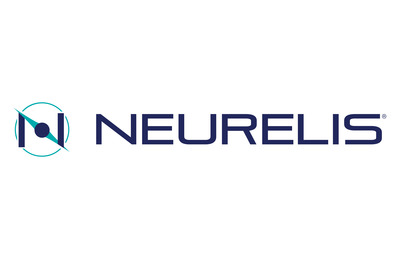Poster presentations provide insights into timing of dosing and seizure termination, as well as interval between episodes of frequent seizures following treatment with diazepam nasal spray
SAN DIEGO, Oct. 8, 2025 /PRNewswire/ -- Neurelis, Inc., the innovator behind VALTOCO® (diazepam nasal spray), today announced it will present two posters at the 54th Child Neurology Society Annual Meeting to be held October 8-11, 2025, in Charlotte, North Carolina.
The Company's presentations highlight post hoc analyses from the recently completed open-label pharmacokinetics (PK) and safety study of diazepam nasal spray for the treatment of episodes of frequent seizures in patients with epilepsy aged 2-5 years. One presentation provides insights into timing of dosing and seizure termination for treated prolonged seizures (PS) and early status epilepticus (SE), occurring within an episode of frequent seizures. The other presentation explores the interval between treated seizure episodes (SEIzure interVAL [SEIVAL]) over time in these young patients as a metric for evaluating potential long-term drug effects beyond the termination of treated episodes of frequent seizures.
"Neurelis is pleased to participate in the Annual Meeting and engage with the community in important discussions to help enable better care for children suffering from neurological disorders," said Adrian L. Rabinowicz, MD, Neurelis Chief Medical Officer. "Providing an easy-to administer, efficacious, and safe treatment for people with epilepsy is a key focus for Neurelis. Being able to share data on our clinical studies of diazepam nasal spray supporting treatment of young pediatric patients is particularly meaningful."
Neurelis' Annual Meeting presentations include the following.
-
Treatment of Prolonged Seizure and Status Epilepticus After T1 in Patients Aged 2-5 Years with Diazepam Nasal Spray: A Post Hoc Analysis (Poster #88)
A post hoc analysis of data from the phase 1/2a PK and safety study of diazepam nasal spray was conducted to assess treatment of PS and SE occurring within episodes of frequent seizures in patients with epilepsy aged 2-5 years. Data showed that diazepam nasal spray provided prompt, reliable control of PS (treated 5-15 minutes after onset) and SE episodes (treated after time point t1, when seizures are abnormally prolonged). These results, along with safety findings, were similar to those of a prior analysis in a population aged 6-65 years. -
Interval Between Seizure Clusters (SEIzure interVAL) Over Time in Pediatric Patients Enrolled in a Phase 1/2a Study of Diazepam Nasal Spray (Poster #58)
Data from the phase 1/2a PK and safety study of diazepam nasal spray was evaluated for SEIVAL, the interval between seizure clusters, in patients aged 2-5 years. Post hoc analysis revealed that mean time interval between treated seizure episodes (SEIVAL) in 90-day periods increased over time in pediatric patients aged 2-5 years. These findings, which are consistent with prior results in patients ages 6-65, suggest a beneficial long-term treatment effect of diazepam nasal spray as an intermittent seizure medication, with safety outcomes in the younger cohort generally consistent with those seen in older patients.
The Child Neurology Society Annual Meeting provides an opportunity for members of the child neurology community to connect, share research, and help advance patient care. Both posters will be presented on Thursday October 9th from 12:30-1:45 PM ET during lunch and again from 5:30-7:00 PM ET during the evening reception.
About Neurelis
Neurelis, Inc., is a neuroscience company focused on the development and commercialization of therapeutics for the treatment of epilepsy and neurologic disorders characterized by high unmet medical need. The FDA has approved Neurelis' VALTOCO® (diazepam nasal spray) as an acute treatment of intermittent, stereotypic episodes of frequent seizure activity (i.e., seizure clusters, acute repetitive seizures) that are distinct from an individual's usual seizure pattern in adult and pediatric patients 2 years of age and older. VALTOCO is a proprietary formulation of diazepam incorporating the science of INTRAVAIL®, a transmucosal absorption enhancement technology that enables the noninvasive delivery of a broad range of protein, peptide, and small-molecule drugs. For more information on VALTOCO, please visit www.valtoco.com. For the latest scientific information on VALTOCO, please visit http://www.neurelismedicalaffairs.com/. Neurelis is also developing NRL-1004, an investigational, Phase 1 stage intranasal olanzapine for treatment of acute agitation episodes associated with schizophrenia and bipolar disorder. In addition, Neurelis is also developing NRL-1049 (previously known as BA-1049), an investigational, Phase 1 new chemical entity Rho kinase (ROCK) inhibitor, for the treatment of cerebral cavernous malformations (CCMS), a rare disorder of the central nervous system (CNS). For more information on Neurelis, please visit www.neurelis.com.
Important Safety Information about VALTOCO:
Indication
VALTOCO® (diazepam nasal spray) is indicated for the acute treatment of intermittent, stereotypic episodes of frequent seizure activity (i.e., seizure clusters, acute repetitive seizures) that are distinct from a patient's usual seizure pattern in patients with epilepsy 2 years of age and older.
|
WARNING: RISKS FROM CONCOMITANT USE WITH OPIOIDS; ABUSE, MISUSE, AND ADDICTION; and DEPENDENCE AND WITHDRAWAL REACTIONS |
|
|
|
|
Contraindications: VALTOCO is contraindicated in patients with:
- Hypersensitivity to diazepam
- Acute narrow-angle glaucoma
Central Nervous System (CNS) Depression
Benzodiazepines, including VALTOCO, may produce CNS depression. Caution patients against engaging in hazardous activities requiring mental alertness, such as operating machinery, driving a motor vehicle, or riding a bicycle, until the effects of the drug, such as drowsiness, have subsided, and as their medical condition permits.
The potential for a synergistic CNS-depressant effect when VALTOCO is used with alcohol or other CNS depressants must be considered, and appropriate recommendations made to the patient and/or care partner.
Suicidal Behavior and Ideation
Antiepileptic drugs (AEDs), including VALTOCO, increase the risk of suicidal ideation and behavior. Patients treated with any AED for any indication should be monitored for the emergence or worsening of depression, suicidal thoughts or behavior, and/or unusual changes in mood or behavior.
Glaucoma
Benzodiazepines, including VALTOCO, can increase intraocular pressure in patients with glaucoma. VALTOCO may only be used in patients with open-angle glaucoma only if they are receiving appropriate therapy. VALTOCO is contraindicated in patients with narrow-angle glaucoma.
Neonatal Sedation and Withdrawal Syndrome
Use of VALTOCO late in pregnancy can result in sedation (respiratory depression, lethargy, hypotonia) and/or withdrawal symptoms (hyperreflexia, irritability, restlessness, tremors, inconsolable crying, and feeding difficulties) in the neonate. Monitor neonates exposed to VALTOCO during pregnancy or labor for signs of sedation and monitor neonates exposed to VALTOCO during pregnancy for signs of withdrawal; manage these neonates accordingly.
Risk of Serious Adverse Reactions in Infants due to Benzyl Alcohol Preservative
VALTOCO is not approved for use in neonates or infants. Serious and fatal adverse reactions, including "gasping syndrome," can occur in neonates and low-birth-weight infants treated with benzyl alcohol–preserved drugs, including VALTOCO. The "gasping syndrome" is characterized by central nervous system depression, metabolic acidosis, and gasping respirations. The minimum amount of benzyl alcohol at which serious adverse reactions may occur is not known.
Adverse Reactions
The most common adverse reactions (at least 4%) were somnolence, headache, and nasal discomfort.
Diazepam, the active ingredient in VALTOCO, is a Schedule IV controlled substance.
To report SUSPECTED ADVERSE REACTIONS, contact Neurelis, Inc. at 1-866-696-3873 or FDA at 1-800-FDA-1088 (www.fda.gov/medwatch).
Please read full Prescribing Information , including Boxed Warning.
Contacts:
Brittany Bradrick, Chief Operating Officer and Chief Financial Officer, +1 858 251 2100
![]() View original content to download multimedia:https://www.prnewswire.com/news-releases/neurelis-to-highlight-data-from-a-study-of-diazepam-nasal-spray-in-pediatric-patients-at-the-child-neurology-society-annual-meeting-302577755.html
View original content to download multimedia:https://www.prnewswire.com/news-releases/neurelis-to-highlight-data-from-a-study-of-diazepam-nasal-spray-in-pediatric-patients-at-the-child-neurology-society-annual-meeting-302577755.html
SOURCE Neurelis, Inc.






